Infographic: Hvernig kolefnislosun vegna siglinga hefur áhrif á norðurslóðir
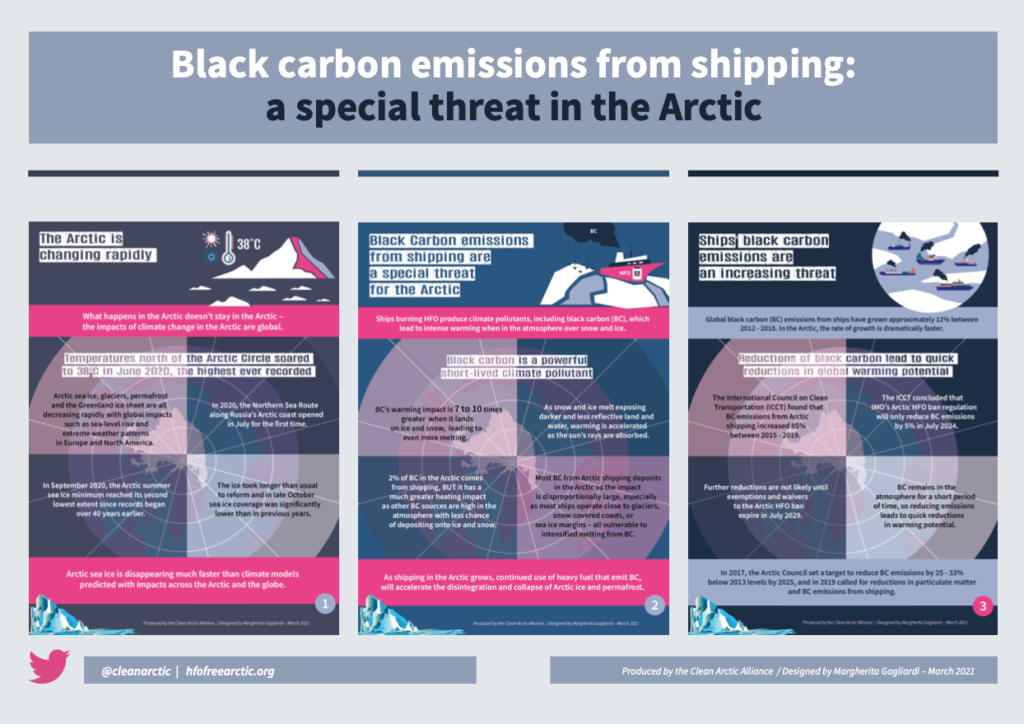
Infographic: Hvernig kolefnislosun vegna siglinga hefur áhrif á norðurslóðir
Reuters Factbox: What happens when there is an oil spill at sea?
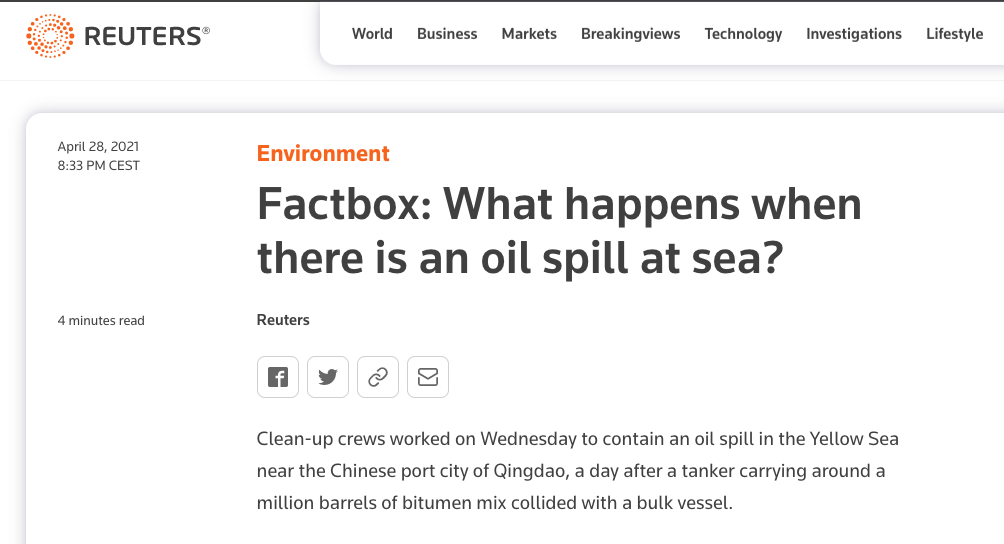
“Heavier oils and crude generally don’t evaporate much and instead of dispersing they form emulsions with the sea water, are much more persistent, spread further and will sink and become mixed with sediments or on coastlines will smother the beaches, rocks,” said Sian Prior, lead advisor with the Clean Arctic Alliance coalition, which has sought to ban the use of heavy fuel oil by ships in the sensitive Arctic region.
“Bacteria will work to degrade these oils too but it takes longer. These types of oil spills lead to much greater volumes of oiled material being retrieved as they coat anything.”
TradeWinds: Arctic shipping must switch to distillates to cut black carbon, ICCT says
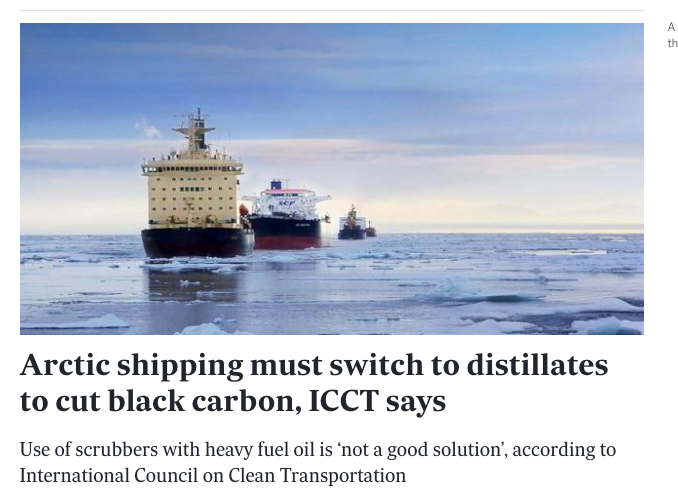
Use of scrubbers with heavy fuel oil is ‘not a good solution’, according to International Council on Clean Transportation
Webinar video: Confronting the Arctic Climate Crisis – What Arctic Countries and the Shipping Industry Can Do
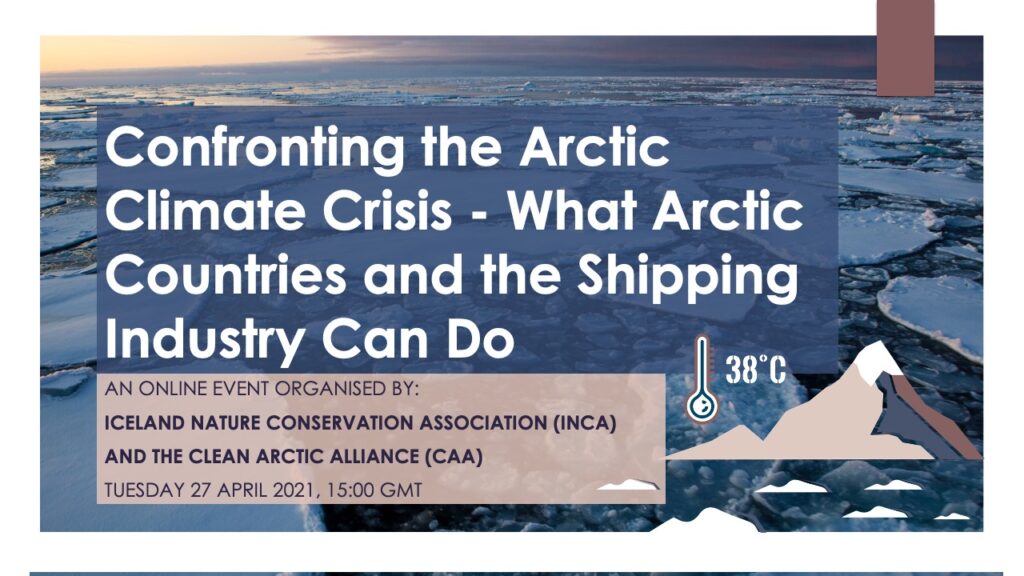
How can the shipping industry become actors of positive change for the Arctic region? How can we inspire political will and decisive action by governments? What role can Iceland and other Arctic Council states play? How can we save the summer sea ice for Arctic communities and the health of the planet? Join us on April 27 to find out.
Marine & Ocean: Protecting the Arctic from the risks of heavy fuel oil
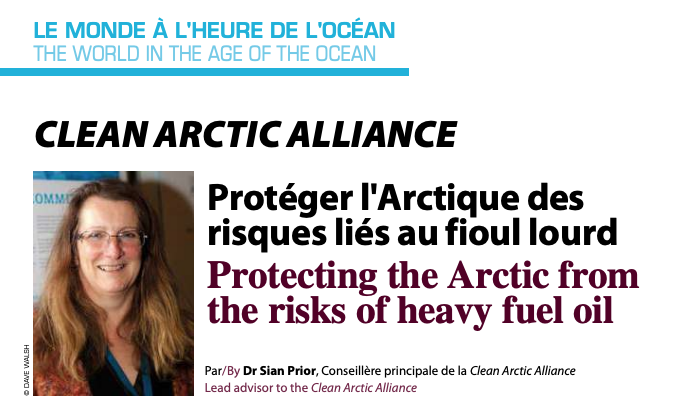
Article by the Clean Arctic Alliance’s Dr Sian Prior in Marine & Oceans, issue 270: “The Arctic is changing, with climate heating having a greater impact on the region than anywhere else on Earth. Not only does this create greater climatic uncertainty for those living both inside and beyond the Arctic, the loss of sea ice opens up the Arctic to new threats, such as oil spills from expanded shipping operations.”

